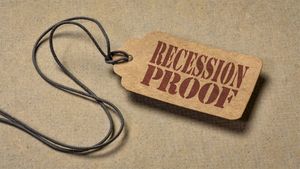Sponsored Content: Refinancing to a longer mortgage can be a great option for homeowners who want to lower their monthly payments and tap into their home’s equity.
Here’s what you need to know about the pros and cons of a mortgage refinance from Discover® or another lender, so you can make the best decision for your financial future.
Pro: Make lower monthly payments
Refinancing will lengthen your loan term. With the loan spread out over a longer period of time, you can make lower monthly payments and free up cash to spend, save, or invest back into your home.
Pro: Pull cash from your equity
If you have equity in your home, you might consider a cash-out refinance that allows you to refinance your loan and take cash out from your home equity all at once. This can increase the amount you’ll owe over time, but it also allows you to have money on hand.
Pro: Eliminate private mortgage insurance
If you initially made a down payment on the purchase of your home that covered less than 20% of your loan, you are likely required to pay private mortgage insurance (PMI) each month. Whether or not you choose to refinance, when you find out that you’ve reached 20% equity in your home, you can ask your lender to cancel your PMI.
Con: Owe more in interest
If you refinance to a longer mortgage term, you’ll be paying off your loan for a greater amount of time. While your monthly payments will be lower, you’ll owe more in interest over the lifetime of your mortgage.
Con: Pay closing costs
Since you’re creating an entirely new mortgage, you’ll have to close on your home again. That means you’ll have to pay closing costs like legal, appraisal, and origination fees. Discover Home Loans offers mortgage refinancing with zero origination fees, zero appraisal fees, and zero cash due at closing.
When does it make sense to refinance to a longer mortgage?
Refinancing to a longer mortgage can help you lower your monthly payments and create more favorable loan terms. If interest rates are low and your home equity has increased, refinancing can help you improve your financial situation and have some more money on hand. But, refinancing isn’t the right decision for every homeowner.
Just remember to consider your current mortgage terms, financial needs, and refinancing options so you can make the best choice.
Contact Information:
Name: Michael Bertini
Email: michael.bertini@iquanti.com
Job Title: Consultant





